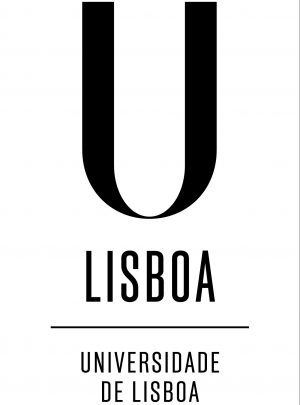
The University of Lisbon (Universidade de Lisboa – ULisboa) is the largest and most prestigious university in Portugal and one of Europe’s leading universities. ULisboa also leads the main international rankings and is amongst the 200 best universities worldwide. Heir to an academic tradition that spans over seven centuries, ULisboa acquired its current status in July 2013, following the merger of the former Universidade Técnica de Lisboa and Universidade de Lisboa. ULisboa is responsible for making the city of Lisbon one of the great European capitals of culture and science,as it welcomes more than 7000 foreign students every year – about 14,5% of the total number of students – from over 100 countries, who are seeking high quality education as well as a different culture, delightful weather and the hospitality that Lisbon, and Portugal, have to offer.
The Instituto de Educação (IE-ULisboa) is the school of the ULisboa committed to research, trainingand public intervention in Education and Training. Research is a central element of its activity,combining fundamental and applied research in key domains of education and training. IE-ULisboacollaborates with several national and international partners in the development of research projectsand integrates academics from different parts of the world, namely as invited professors and as postdocstudents. IE-ULisboa provides training activities in undergraduate (bachelor) and graduate(specialization, master’s and doctorate) programs in different fields of Education andTraining.
In2018-19, 900 students were enrolled in IE-ULisboa programs (200 as undergraduate and 700 as graduate students), attracting 200 students from 17 countries. IE-ULisboa provides advisory and training services to educational organizations, as well as scientific and technical support for the design, monitoring and evaluation of public policies, especially in the areas of curriculum, didactics,assessment, teacher education and school administration, in Portugal and in Portuguese-speakingcountries.
UIDEF [Research and Development Unit in Education and Training] is the research unit of theIEULisboa. UIDEF has a strong team of researchers, including members of IE-ULisboa and from other higher education institutions. UIDEF research is developed in close connection with the IE-ULisboa advanced training activities and with national and international research funded projects. UIDEF research is carried out within the framework of the two programs: Education XXI and ChangeForcesin Education. The first addresses the diversification, modernization and improvement of education. Itstudies the development of educational structures, processes and practices, including the integrationand use of digital technologies, oriented towards the promotion of socially relevant learning. Attentionis given to two central problems: quality of learning, considering issues related to the acquisition anddevelopment of competences and skills; and inclusion, addressing the ongoing engagement withdiversity. The second deals with the issues of coordination, steering and monitoring of change ineducation systems. Attention is given to two central problems: the professional development ineducation professions, particularly focusing on the ocialization and training processes of teachersand other educators; and the processes and effects of participation and accountability in thegovernance of education systems, particularly focusing on the construction, implementation andassessment of educational public policies. UIDEF holds a recognized scientific production ininternational peer review journals and other publications, informs and affects public policy, supportsand collaborates with practitioners and decision makers, and strives to develop the competence of itsresearchers as well as to train new generations of young researchers. UIDEF promotes national andinternational scientific conferences and keeps a calendar of research seminars and outreachinitiatives, often in collaboration with other research units and educational institutions. It maintainsclose partnerships with many international institutions, attracting a significant number of internationalstudents for doctoral studies and post-doctoral programs.
IE has a strong tradition of studies in the field of educational administration, working with principals,schools, and education inspection. The key persons involved in this project (Estela Costa and MartaAlmeida) develop their research activities in the field of Educational Administration and Policy, with afocus on leadership processes and organizational development practices, school management andschool evaluation. Both have been working for a long time with the Ministry of Education and Inspection of education. They have been involved in continuing training of school principals(Microsoft Project ‘Innovative Leaders’; Ministry of Education) and inspectors of Education (Ministryof Education). Moreover, both direct Master’s students in internships at the General Inspection ofEducation and Science (IGEC) and they are both experts from the University of Lisbon for theInspection Program of evaluation of schools.
Moreover, they have considerable research on school evaluation, sel-evaluation and about the
Inspection Program of evaluation of schools. Not least, the two researchers have in-depth knowledgeabout the Portuguese school. Since 2012, Estela Costa coordinates the IE-ULisboa externalconsulting team of ‘Educational Territories of Priority Intervention school clusters’ (TEIP), inpartnership with the Ministry of Education (ME), a Program created in the late 1990s to support schools that are located in economically and socially disadvantaged areas. Marta Almeida is one of the TEIP experts. Estela Costa also coordinates ‘Redescola’ (SchoolNetwork), an initiative of IEULisboathat involves professionals in the area of education (teachers, school managers, teacher training centres and other education actors), and researchers and teacher educators. It intends to promote research-informed debate and joint reflection upon issues linked to the present education reality; foster a permanent liaison between IE-ULisboa and school clusters as a way to nurture the mutual exchange of experiences; and create opportunities for the development of research projects and partnerships based on shared interests. They both have several works published in Portugal and abroad on these subjects.
